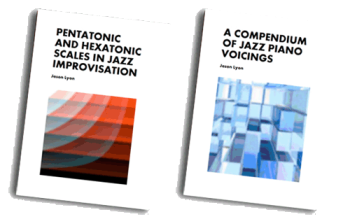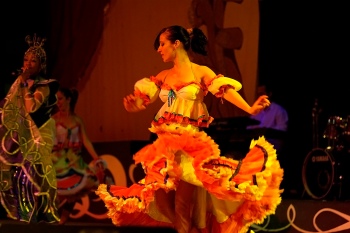
A hippie in the ’60s
We had a really enjoyable gig recently with trumpeter Quentin Collins and he brought some interesting tunes along. QC (appearing for the modern harmony, m’lud) was obviously in a sort of early-’60s Blue Note frame of mind. Got me thinking about the ’60s.
I love that stuff, I feel at home in it, and the house trio really got into it too. But permit me a personal digression at this point for a little pèlerinage sur les lieux du passé. Or…
A TRIP DOWN MEMORY LANE
When I was a young pup I pissed off to live in Paris for a while. And I did what anyone does when they’re fresh to a foreign city. I trawled the bars, rationing the beer against the money and getting a feel for the place. Among other things.
One night I wandered into a little club round the back of the Pompidou Centre and was a bit disappointed to find that although they had a nice little stage, there wasn’t a band on. It was a dead night and some of the staff joined me at the bar, listening to the background music and dreaming. They were playing a Wayne Shorter album – Adam’s Apple, I think.
It was the first time I’d heard it and I just sat there soaking it up. It just felt so airy, so free and fresh, so not ting-ting-ta-ting. I remember thinking: that’s the kind of jazz I’d like to play. The association was strongly made and I was mentally catapulted back to that moment on the gig the other day.
LE RETOUR

A Quentin Collins in the now
What am I trying to say here? Well, some people tend to think of the ’50s as the big deal in jazz and the ’60s as the point when it started to go off the boil a bit. By the end of the decade it had either spun off into high-intensity art music or hooked up with a rock chick.
The tendency is to associate the ’60s with flower power and such. But there was something in the jazz air too. Those recordings by people like Shorter, Herbie, Joe Henderson, Lee Morgan, Woody Shaw and the Blakey gang had a really special thing. They were melodically, harmonically and rhythmically different to what had come before, but not obstinately so. They were memorable, interesting and made sense – just their own sense. You didn’t know the melodies, but after listening you rather felt you should. It was different, but not difficult.
Listening to these recordings, I’m often struck by the fact that while the musicians do often get extravagant, they’re mostly just calmly enjoying themselves exploring the usually new and very clear concepts in the tunes. It was almost as if the newness of it was enough. Sometimes they’re just savouring a handful of notes as they navigate changes of mode. See Modus Operandi. And it works beautifully.
A lot of this repertoire is sadly neglected these days and that’s a shame. So perhaps on your next gig you could consider Bolivia rather than Bye Bye Blackbird, Driftin rather than Donna Lee, El Gaucho rather than Embraceable You.
I promise you’ll get a kick out of them, as will your audience. It was also interesting that when Quentin chucked a couple of standards in, some of that ’60s feeling infused those tunes too.
Quite a few of these tunes are on my Spotify playlist btw, if you’re of that persuasion.





Great musical suggestions , A note on the pretext: Nothing influenced real hippie music (not the contrived commercial stuff, like the posted photo of a model drenched in make up labeled as a hippie) as much as Coltrane’s extended improv. .And btw ,Monk was the first musician Leary gave LSD to.
Fair points Sam. I’m an old Fleet Street slut at heart – write it, then find a headline and a pic…
I’d also add that when Coltrane really turns it up it actually starts to turn me off. And I really don’t think Monk needed acid – he was pretty much fully conscious-expanded already.
I also have my parents’ word to say that the hippie thing really wasn’t all that much to write home about, any more than the later swinging London thing was. Both the Haight-Ashbury and Carnaby Street scenes were apparently somewhat inflated after the fact…
Monk and Coltrane both took acid